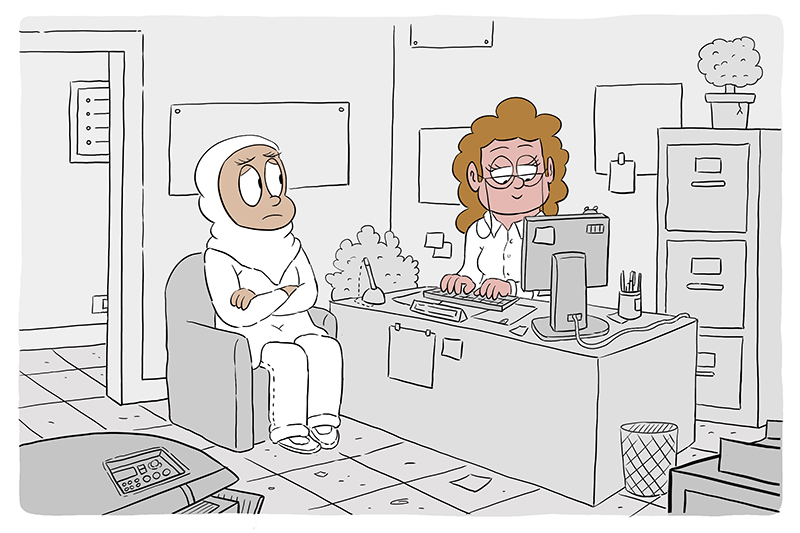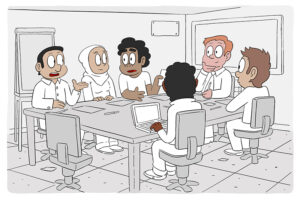
Hanan goes to the immigration office to ask if she can work two nights a week at a local Lebanese restaurant. The work matches her experience from their former restaurant in Aleppo. Hanan is proud to have found a job and earn something. But the official at the office, a young woman named José, says she doesn’t know if this is possible. She will let her know next week. Hanan doesn’t understand; she gets no answer. “That surprises me! Doesn’t that woman know her own rules? Is she even suitable, is she the right person to talk about this?”
José is still relatively new to this position. She is not sure about this woman, who is still in her asylum application. “I wasn’t sure, which is why I first want to check with my team leader what the rules are around working and earning money. I’d rather not make a statement that could get people in trouble.” So she asks the woman to be patient until she figures it out for her.
The connection
In the Netherlands, we value an honest and clear answer. We don’t beat around the bush. It is also fine to admit that you don’t know something. In fact, it’s much better than making up an answer to hide the fact that you don’t know. Dutch has a saying, “You’re never too old to learn. You don’t lose credibility and confidence when you admit that you don’t know something (for sure). On the contrary, you do lose confidence when you make up something that later turns out to be untrue.
Hanan is not used to that direct way of communicating. She also needs certainty. A clear answer to her question. The official is not ashamed of not knowing something and does not hide it. It is no reason to question her credibility. Hanan can expect the woman to give a clear answer next week.
But Hanan does not have that trust in advance. For her, trust is earned. In the Netherlands, in principle, there is no reason not to trust someone. Even if they don’t give a clear answer.
José will have to understand that Hanan finds this ambiguity unpleasant and that it makes her angry or uncertain. José can explain more clearly to Hanan what she will do to get to the answer. No worries. By giving more context. “This is a question for the experts, I don’t know all the rules by heart and I’ll figure it out and get back to you next Tuesday. In this way, she gives Hanan confidence that she is understood and that the official has a good reason for not helping her right away.
So paying a lot of attention to the context to show that Hanan can trust the official.
In short
For José:
- Accept that Mahmoud comes from a society where insecurity is undesirable.
- Providing clarity by explaining more helps….
- Be extra alert to the other person’s body language; Hanan will not immediately express her surprise.
For Hanan:
- The Netherlands has a society in which people clearly say what they mean….
- You can rest assured that what is said will be done.
- Try asking directly, without loose ends. The Dutch are used to being addressed directly.
Want to read more about culture dimensions?
Important to know:
This anecdote is based on stories shared with us. Connect2Us strives to highlight the dilemma from both sides and not to label people or suggest that one or the other should behave differently. We see in our daily intercultural work that awareness by those involved is enough to move toward each other without pretending to be very different. Connect2Us aims to help readers recognize and avoid prejudice. Read about prejudice, discrimination and racism here.

